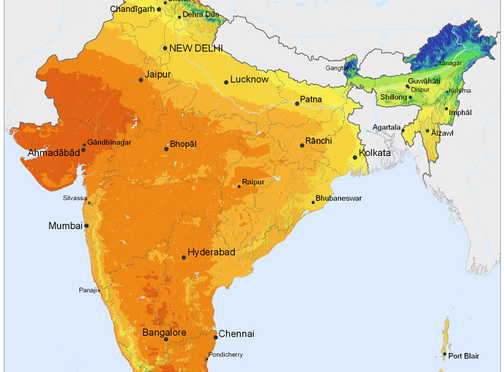Goyal said concentrated solar power (CSP) plants are more suitable than solar PV plants for large-scale power generation.
“This is so because concentrated solar thermal plants equipped with thermal energy storage can provide dispatchable energy supply – that is their power output can be adjusted based on grid demand, power can be supplied when sun is not shining and at largescale, the storage of thermal energy (heat) is easier and more efficient than that of electricity. Also, hybridization with other fuels is possible,” Goyal said.
The government today said it has set a target of capacity addition of 29,800 MW of power from various renewable energy sources during 12th Plan period.
Minister of State for Power, Coal and New and Renewable Energy Piyush Goyal told the Rajya Sabha in a written reply that Rs 19,113 crore has been provided for promotion and generation of renewable energy during the Twelfth Five-Year Plan period.
“The Ministry of New and Renewable Energy has set a target of capacity addition of 29,800 MW from various renewable energy sources during the 12th Plan period.
“The target comprises of 15,000 MW from wind energy, 10,000 MW from solar energy, 2,100 MW from small hydro and 2,700 MW from bio-power,” Goyal said.
The Minister said details of power generated from the renewable energy sources in public sector undertakings as well as in the private sector during 2012-13 and 2013-14 are 47.61 billion units and 53.22 billion units respectively.
The Minister further stated that budget allocation for the years 2015-16 and 2016-17 will be done after approval of annual plans by the government and physical targets will be fixed accordingly.
Replying to another question, he said his ministry had prepared a strategic plan for New and Renewable Energy Sector in the year 2011 which has indicated a cumulative installed capacity of renewable power to about 72,000 MW by 2022. (more)
Goyal said the government implements schemes for cost effective solar power lighting solutions for rural population in electrified or unelectrified areas and villages that may have an impact on kerosene subsidy bill.
Lighting up about 47 percent of the country’s population will depend on the fund availability in the respective programme, he said while replying to another question.
Replying to another question on whether government proposes to increase fund allocation in new and renewable in comparison to last year, Goyal said a provision of Rs 2519 crore has been made in the year 2014-15 in comparison to Rs 1521 crore provided in budget estimates during last year for renewable energy sources.
He said Rs 1619.03 crore against Rs 1738.68 crore provided in revised estimate has been utilized by the ministry during last year.
He said the government has been promoting solar thermal technology under National Solar Mission. “However, its deployment has been limited due to its high capital cost and large land area requirement and long duration required for project completion,” Goyal said.
He said the government is already incentivizing the setting up of solar thermal projects alloted to private developers under NSM Phase-1.
“Preferrential tariffs of Rs 15.31/units (CERC benchmark tarrif for year 2010-11) for three such projects of total of 30 MW capacity and Rs 10.49-12.24/unit as determined through a reverse bidding process for seven such projects of total of 470 MW capacity totaling 500 MW has been approved in 2010-11,” he said.
http://www.helioscsp.com/noticia.php?id_not=2620


